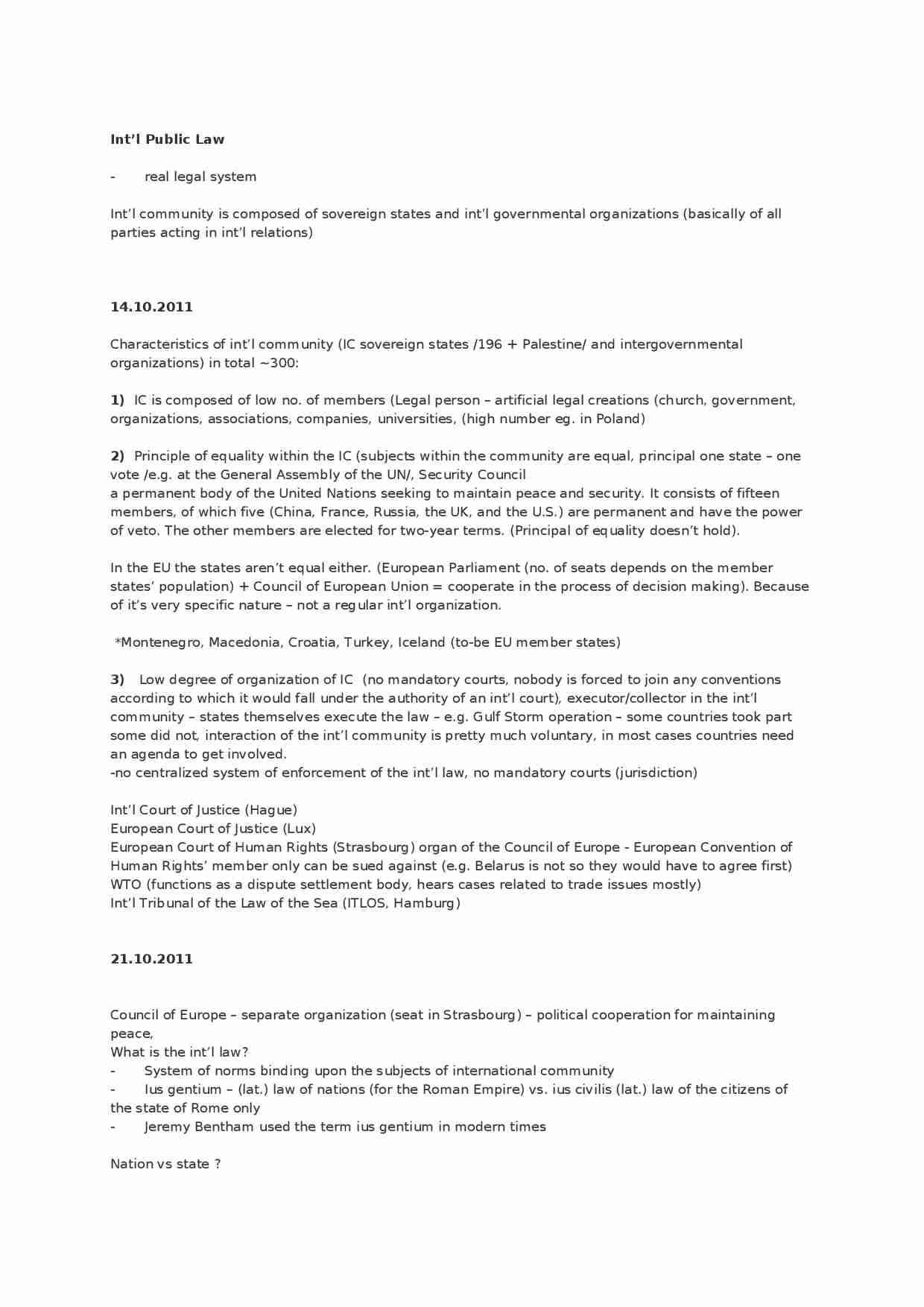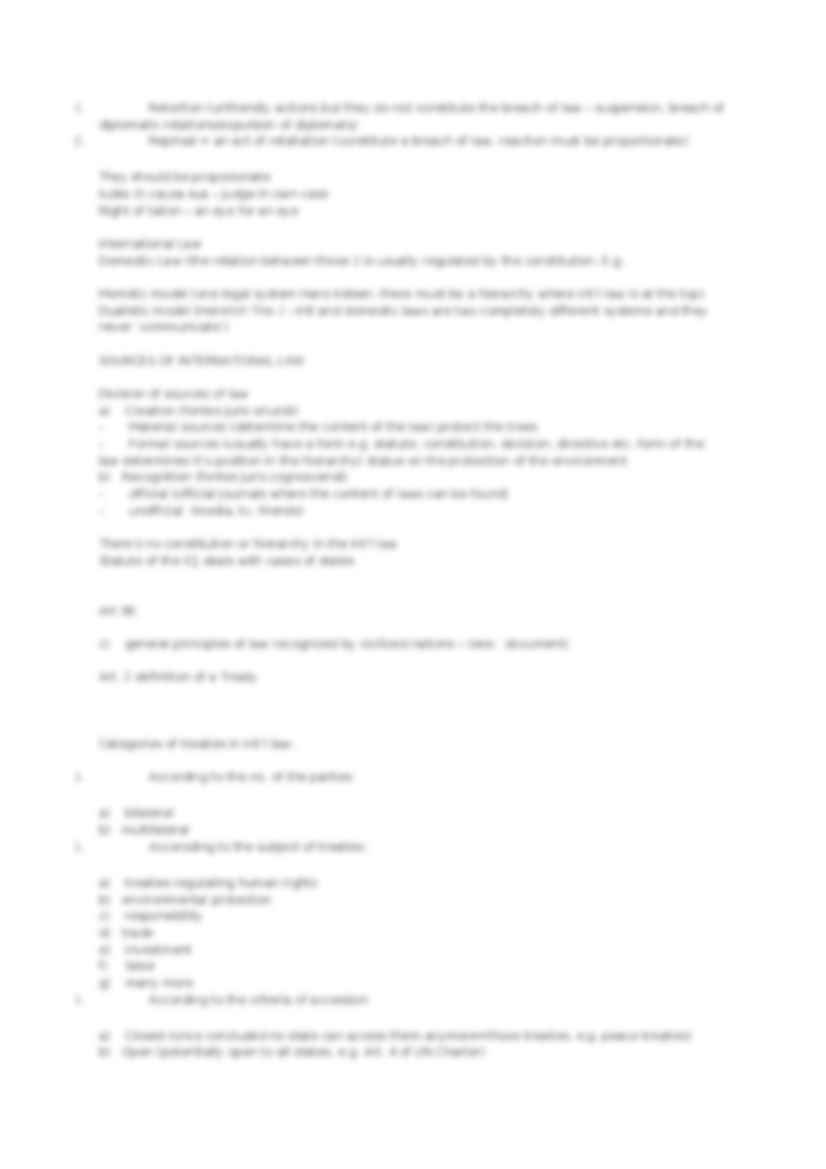To tylko jedna z 7 stron tej notatki. Zaloguj się aby zobaczyć ten dokument.
Zobacz
całą notatkę



Int'l Public Law - real legal system Int'l community is composed of sovereign states and int'l governmental organizations (basically of all parties acting in int'l relations) 14.10.2011 Characteristics of int'l community (IC sovereign states /196 + Palestine/ and intergovernmental organizations) in total ~300: 1) IC is composed of low no. of members (Legal person - artificial legal creations (church, government, organizations, associations, companies, universities, (high number eg. in Poland) 2) Principle of equality within the IC (subjects within the community are equal, principal one state - one vote /e.g. at the General Assembly of the UN/, Security Council a permanent body of the United Nations seeking to maintain peace and security. It consists of fifteen members, of which five (China, France, Russia, the UK, and the U.S.) are permanent and have the power of veto. The other members are elected for two-year terms. (Principal of equality doesn't hold). In the EU the states aren't equal either. (European Parliament (no. of seats depends on the member states' population) + Council of European Union = cooperate in the process of decision making). Because of it's very specific nature - not a regular int'l organization. *Montenegro, Macedonia, Croatia, Turkey, Iceland (to-be EU member states) 3) Low degree of organization of IC (no mandatory courts, nobody is forced to join any conventions according to which it would fall under the authority of an int'l court), executor/collector in the int'l community - states themselves execute the law - e.g. Gulf Storm operation - some countries took part some did not, interaction of the int'l community is pretty much voluntary, in most cases countries need an agenda to get involved. -no centralized system of enforcement of the int'l law, no mandatory courts (jurisdiction) Int'l Court of Justice (Hague) European Court of Justice (Lux) European Court of Human Rights (Strasbourg) organ of the Council of Europe - European Convention of Human Rights' member only can be sued against (e.g. Belarus is not so they would have to agree first) WTO (functions as a dispute settlement body, hears cases related to trade issues mostly) Int'l Tribunal of the Law of the Sea (ITLOS, Hamburg) 21.10.2011 Council of Europe - separate organization (seat in Strasbourg) - political cooperation for maintaining peace, What is the int'l law? - System of norms binding upon the subjects of international community
(…)
… the subjects of international community
- Ius gentium - (lat.) law of nations (for the Roman Empire) vs. ius civilis (lat.) law of the citizens of the state of Rome only
- Jeremy Bentham used the term ius gentium in modern times
Nation vs state ?
Nations w/out states - e.g. Palestinians, Gypsies (nation or an ethnic minority?)
International law or interstate law?
2 contradictory principles of…
… arranged/systematized?
De iure belli ac pacis - about the law of war and peace (1625 by Hugo de Groot) (1. When the war is justified? 2. What means can you use when you conduct the war?)
It systematized int'l into 2 parts. This distinction is no longer used in int'l law.
Ius ad bellum - right to war (self - defense)
Ius in bello - right in war - how to conduct the war, what means can be used and to what…
... zobacz całą notatkę






Komentarze użytkowników (0)